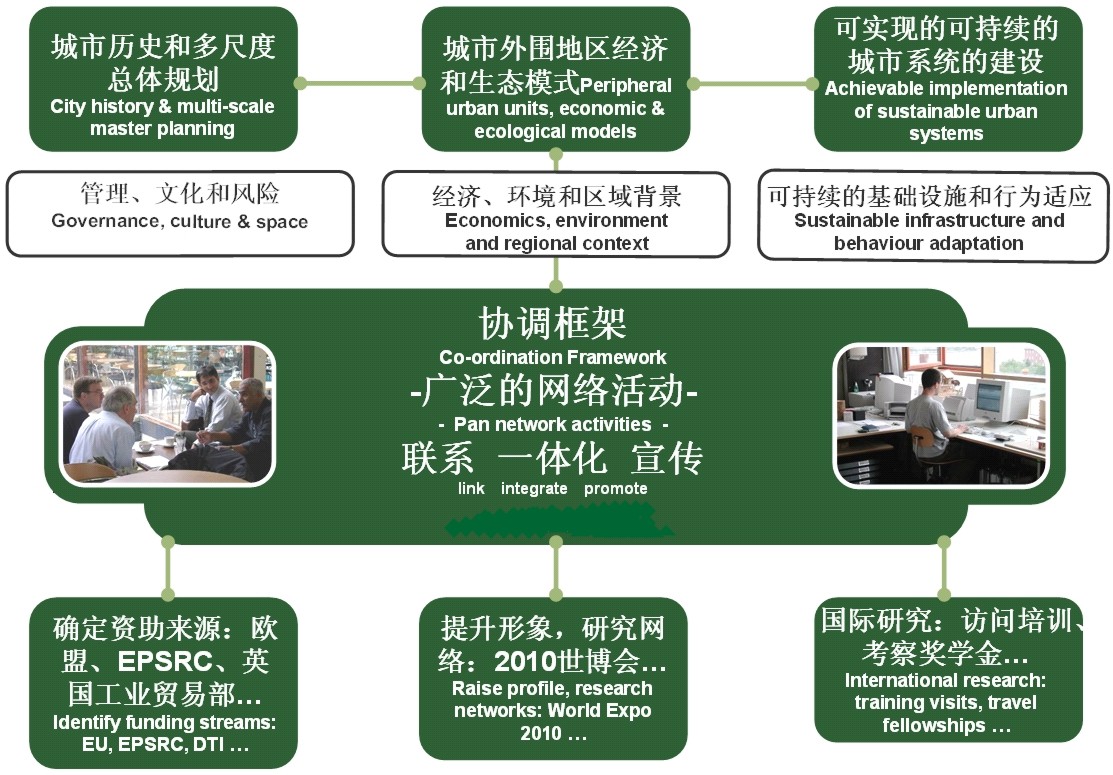The China-UK Ecoregion Research Networks brings together industry, academia and government for practical research, innovation and global interaction in the development of eco-cities and ecoregions worldwide.
The planned development of eco-cities in China and the UK has acted as a catalyst for the formation of networks between researchers in the UK, China and other nations. The networks were first established by the UK Engineering and Physical Sciences Research Council (EPSRC), global engineering firm Arup, and the Chinese government. They have worked together with academic institutions in the UK and China to develop 3 networks for the establishment of research programmes, to achieve the most sustainable approaches for the development of eco-cities and eco-regions.
The networks allow researchers to undertake visits and workshops to discuss research challenges, develop new and exciting collaborations across cultures and continents and generate ground-breaking research proposals.
EPSRC, Arup and other partners are contributing to the networks in the form of project information, technical expertise and administrative support.
| Research Area | Network |
| Governance, culture and space | CHaMSpaM (City History and Multi-scale Spatial Master-planning) |
| Economics, environment and regional context | ECOCIT (Sustainable Economic and Ecological Models for Peripheral Urban Functional Units) |
| Sustainable infrastructure and behaviour adaptation | SUSTAIN (Sustainable Urban Systems to Transfer Achievable Implementation) |

The Coordination Framework, headquartered at the University of Southampton, provides linkage between the three research networks and facilitates pan-network activities:
• Identification of funding streams for new initiatives across networks
• Raising the profile of the networks and dissemination of network research findings at major international events
• Facilitation of training visits and travel fellowships for Chinese and international researchers.
For more information visit the Ecoregion Research Networks website.
